Thousands pour onto streets in Shenzhen, Guangzhou to protest the Japanese
Posted: 08/19/2012 5:53 pmThousands of people marched through the streets of Shenzhen, Guangzhou, and other cities in China today to protest the Japanese claims to the Diaoyu Islands, known as the Senkaku in Japanese.
The islands have become a flashpoint in Sino-Japanese relations of late, with a Hong Kong boat reaching the Japanese-administered islands last week and unfurling a Chinese flag. Both countries insist the rocks, in an area rich in oil and gas, belong to them.
People in both Shenzhen and Guangzhou took to the streets today, along with their compatriots in Beijing, Hangzhou, Yiwu, Chengdu, Nanchang, Wenzhou, Taiyuan, Suzhou, and Changsha, to protest a Japanese landing at one of the uninhabited islands this morning.
Reports from Shenzhen and Guangzhou indicate thousands of people marched through the streets denouncing Japan, with some even smashing Japanese-made cars. Photos of the protests are below.
RTHK has some details:
More than a hundred people gathered near the complex housing the Japanese consulate in Guangzhou, chanting “Japan get out of the Diaoyu Islands,” Xinhua news agency said.
In Shenzhen, protesters gathered at an outdoor plaza, waving Chinese flags and shouting slogans, Xinhua said, but did not give the number of participants.
Zhang Pei, one participant, said protesters were marching towards a train station on the border with Hong Kong.
“The demonstration is strung out for seven to eight kilometres. Many police are escorting us along the street,” he told AFP news agency.
Reuters reports on the landing made by the Japanese Sunday morning, which may have sparked the protest:
Early on Sunday, 10 members of a group of more than 100 Japanese nationalists who sailed to the island chain swam ashore to one of the islets and waved Japanese flags.
Three Japanese Coast Guard vessels were nearby, a Reuters TV journalist on board one of the boats said.
“I was hoping that someone with a real sense of Japanese spirit and courage would go and land and raise the flag, I just feel they’ve done a good job,” said Kazuko Uematsu, local lawmaker from Shizuoka Prefecture who was part of the flotilla.
The photos below are taken from Weibo.
(Thanks @MissXQ for the tips and photos).


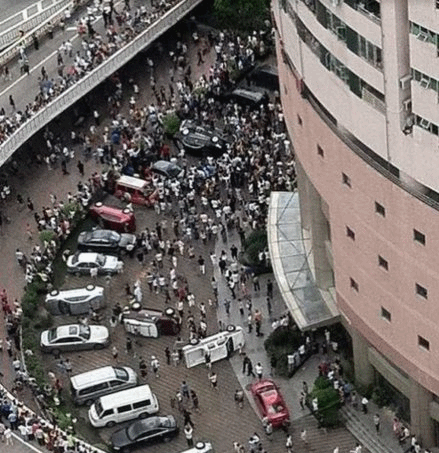

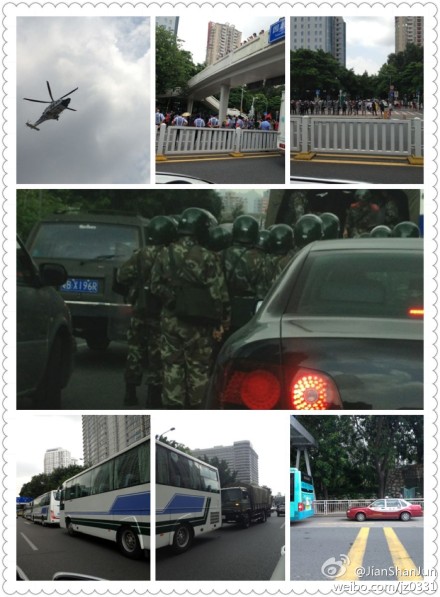
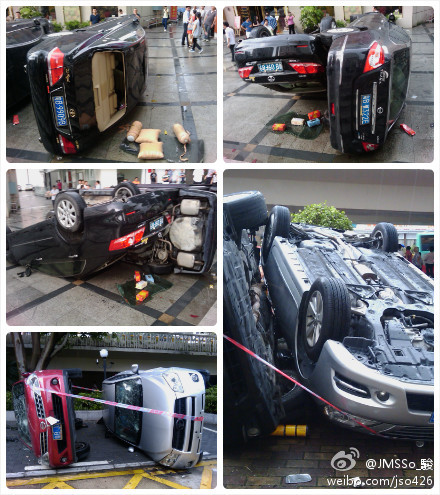
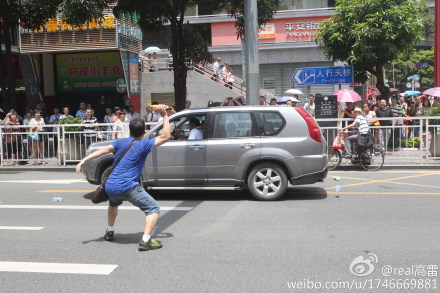
 12
12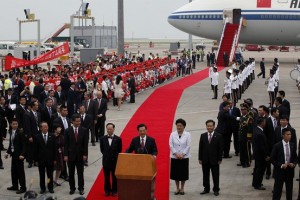

 1K
1K


Reflecting on Liu Xiang’s flameout now that the London Olympics have drawn to a close
Posted: 08/13/2012 4:26 pmHurdler Liu Xiang became the golden boy of Chinese athletics after becoming the country’s first competitor to win Olympic gold in a track and field event in 2004. But for the second olympics in a row he has crashed out as a nation expected. This second successive disappointment drew more than 2 million posts in the space of an hour on Chinese microblogs.
Handsome and likeable, people in China have every reason to love Liu along with other star Olympians such as Lin Dan and Chen Ding. But the world of sport is not supposed to be kind, and being a fan involves learning to meet heartache with stoicism.
Certain media have neglected to report that there were other competitors in the heat in which Liu fell last Tuesday. In fact, but four other male hurdlers fell in the heats. This has been attributed by netizen Li Yi to the British hosts making the hurdles 4.3cm taller than the standard on which all but the British athletes trained. Needless to say, Chinese netizens aren’t happy.
One Sina Weibo user screamed, “England, go and die!” The sentiment was echoed around Chinese cyberspace, but it’s common knowledge that home advantage is important in sport, and in 2008 China faced all kinds of allegations about cheating. It is hardly a coincidence that the country’s highest ever medal haul came on home soil. Having a victim complex is not an attractive quality in a person, why would that principle not apply to an entire country?
The Dutch soccer team of the 1970s is widely regarded as the greatest never to have won a World Cup. In 1974, they lost in the final to West Germany after a German newspaper published allegations about Dutch captain Johann Cruyff cheating on his wife. Cruyff had to spend the night before the final on the phone explaining himself. This was part of the reason why Cruyff did not go to the following World Cup in Argentina where the Dutch, captained by Cruyff’s very able lieutenant Johann Neeskens, lost again in the final to the hosts who were widely thought to be guilty of much skullduggery.
But that Dutch team is still remembered much more fondly than the teams that dispatched it because its dazzlingly talented members played with a flair and a joie de vivre that most athletes in the current Chinese system have beaten out of them before they reach puberty, if they even get that far.
There are two types of people who are wasting their lives as surely as any drug addict, alcoholic or fashion journalist: expats who spend their time whining about the fact that China isn’t fair, and Chinese who imagine the whole world is sufficiently interested in them to conspire against them.